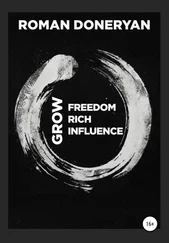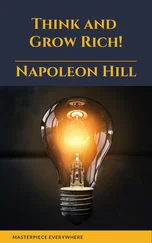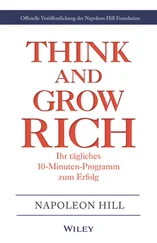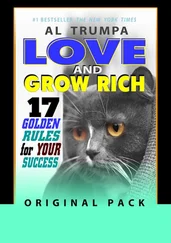"It is probable, however, that it was a `homely' speech, somewhat ungrammatical (for the niceties of language never bothered Schwab), full of epigram and threaded with wit. But aside from that it had a galvanic force and effect upon the five billions of estimated capital that was represented by the diners. After it was over and the gathering was still under its spell, although Schwab had talked for ninety minutes, Morgan led the orator to a recessed window where, dangling their legs from the high, uncomfortable seat, they talked for an hour more.
"The magic of the Schwab personality had been turned on, full force, but what was more important and lasting was the full-fledged, clear-cut program he laid down for the aggrandizement of Steel. Many other men had tried to interest Morgan in slapping together a steel trust after the pattern of the biscuit, wire and hoop, sugar, rubber, whisky, oil or chewing gum combinations. John W. Gates, the gambler, had urged it, but Morgan distrusted him. The Moore boys, Bill and Jim, Chicago stock jobbers who had glued together a match trust and a cracker corporation, had urged it and failed. Elbert H. Gary, the sanctimonious country lawyer, wanted to foster it, but he wasn't big enough to be impressive. Until Schwab's eloquence took J. P. Morgan to the heights from which he could visualize the solid results of the most daring financial undertaking ever conceived, the project was regarded as a delirious dream of easy-money crackpots.
"The financial magnetism that began, a generation ago, to attract thousands of small and sometimes inefficiently managed companies into large and competition-crushing combinations, had become operative in the steel world through the devices of that jovial business pirate, John W. Gates. Gates already had formed the American Steel and Wire Company out of a chain of small concerns, and together with Morgan had created the Federal Steel Company.
The National Tube and American Bridge companies were two more Morgan concerns, and the Moore Brothers had forsaken the match and cookie business to form the `American' group- Tin Plate, Steel Hoop, Sheet Steel-and the National Steel Company.
"But by the side of Andrew Carnegie's gigantic vertical trust, a trust owned and operated by fifty-three partners, those other combinations were picayune. They might combine to their heart's content but the whole lot of them couldn't make a dent in the Carnegie organization, and Morgan knew it.
"The eccentric old Scot knew it, too. From the magnificent heights of Skibo Castle he had viewed, first with amusement and then with resentment, the attempts of Morgan's smaller companies to cut into his business. When the attempts became too bold, Carnegie's temper was translated into anger and retaliation. He decided to duplicate every mill owned by his rivals. Hitherto, he hadn't been interested in wire, pipe, hoops, or sheet. Instead, he was content to sell such companies the raw steel and let them work it into whatever shape they wanted. Now, with Schwab as his chief and able lieutenant, he planned to drive his enemies to the wall.
"So it was that in the speech of Charles M. Schwab, Morgan saw the answer to his problem of combination. A trust without Carnegie-giant of them all-would be no trust at all, a plum pudding, as one writer said, without the plums.
"Schwab's speech on the night of December 12, 1900, undoubtedly carried the inference, though not the pledge, that the vast Carnegie enterprise could be brought under the Morgan tent.
He talked of the world future for steel, of reorganization for efficiency, of specialization, of the scrapping of unsuccessful mills and concentration of effort on the flourishing properties, of economies in the ore traffic, of economies in overhead and administrative departments, of capturing foreign markets.
"More than that, he told the buccaneers among them wherein lay the errors of their customary piracy. Their purposes, he inferred, bad been to create monopolies, raise prices, and pay themselves fat dividends out of privilege. Schwab condemned the system in his heartiest manner. The shortsightedness of such a policy, he told his hearers, lay in the fact that it restricted the market in an era when everything cried for expansion. By cheapening the cost of steel, he argued, an ever-expanding market would be created; more uses for steel would be devised, and a goodly portion of the world trade could be captured. Actually, though he did not know it, Schwab was an apostle of modern mass production.
"So the dinner at the University Club came to an end. Morgan went home, to think about Schwab's rosy predictions. Schwab went back to Pittsburgh to run the steel business for `Wee Andra Carnegie,' while Gary and the rest went back to their stock tickers, to fiddle around in anticipation of the next move.
"It was not long coming. It took Morgan about one week to digest the feast of reason Schwab had placed before him. When he had assured himself that no financial indigestion was to result, he sent for Schwab-and found that young man rather coy. Mr. Carnegie, Schwab indicated, might not like it if he found his trusted company president had been flirting with the Emperor of Wall Street, the Street upon which Carnegie was resolved never to tread.
Then it was suggested by John W. Gates the go-between, that if Schwab `happened' to be in the Bellevue Hotel in Philadelphia, J. P. Morgan might also `happen' to be there. When Schwab arrived, however, Morgan was inconveniently ill at his New York home, and so, on the elder man's pressing invitation, Schwab went to New York and presented himself at the door of the financier's library.
"Now certain economic historians have professed the belief that from the beginning to the end of the drama, the stage was set by Andrew Carnegie-that the dinner to Schwab, the famous speech, the Sunday night conference between Schwab and the Money King, were events arranged by the canny Scot. The truth is exactly the opposite. When Schwab was called in to consummate the deal, he didn't even know whether `the little boss,' as Andrew was called, would so much as listen to an offer to sell, particularly to a group of men whom Andrew regarded as being endowed with something less than holiness. But Schwab did take into the conference with him, in his own handwriting, six sheets of copper-plate figures, representing to his mind the physical worth and the potential earning capacity of every steel company he regarded as an essential star in the new metal firmament.
"Four men pondered over these figures all night. The chief, of course, was Morgan, steadfast in his belief in the Divine Right of Money. With him was his aristocratic partner, Robert Bacon, a scholar and a gentleman. The third was John W. Gates whom Morgan scorned as a gambler and used as a tool. The fourth was Schwab, who knew more about the processes of making and selling steel than any whole group of men then living. Throughout that conference, the Pittsburgher's figures were never questioned. If he said a company was worth so much, then it was worth that much and no more. He was insistent, too, upon including in the combination only those concerns he nominated. He had conceived a corporation in which there would be no duplication, not even to satisfy the greed of friends who wanted to unload their companies upon the broad Morgan shoulders. Thus he left out, by design, a number of the larger concerns upon which the Walruses and Carpenters of Wall Street had cast hungry eyes.
"When dawn came, Morgan rose and straightened his back. Only one question remained. "`Do you think you can persuade Andrew Carnegie to sell?' he asked.
"`I can try,' said Schwab.
"`If you can get him to sell, I will undertake the matter,' said Morgan.
"So far so good. But would Carnegie sell? How much would he demand? (Schwab thought about $320,000,000). What would he take payment in? Common or preferred stocks? Bonds? Cash? No-body could raise a third of a billion dollars in cash.
Читать дальше











